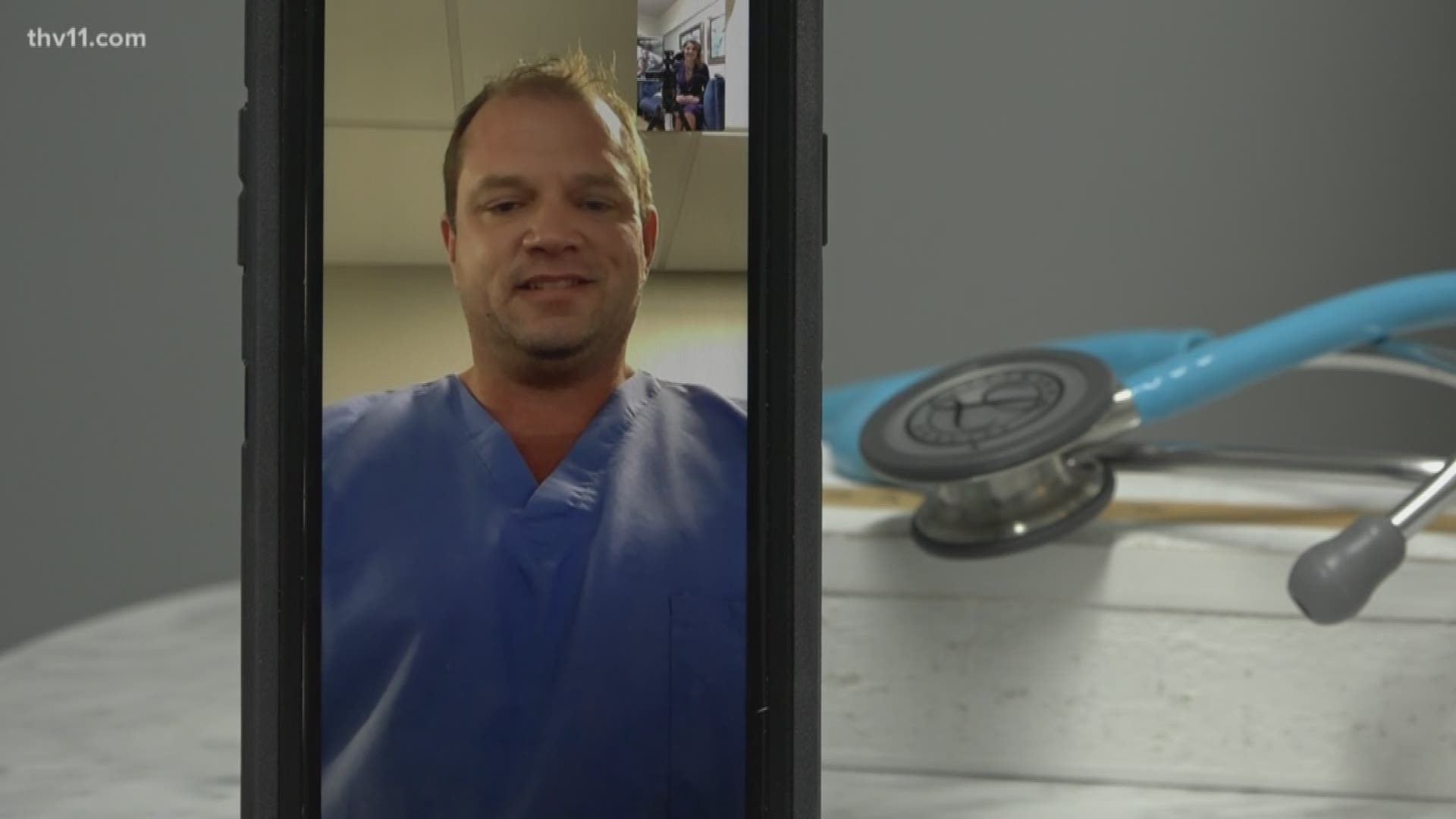LITTLE ROCK, Ark — As the coronavirus continues to spread, more physicians are being pushed to tackle telehealth as a way of communicating with patients.
Orthopedic Surgeon Dr. Justin Seale with OrthoArkansas doesn't typically see patients over the phone because of the type of care he provides; most of his patients require x-rays and scans. He also says doctors have been meet with restrictions in the past when it comes to telehealth, but that has since changed because of the pandemic.
“During this Covid-19 crisis, Arkansas has really relaxed the laws to be able to use technology to care for patients without exposing them to it,” said Dr. Justin Seale.
OrthoArkansas is one of many clinics across the country fast tracking its use of telehealth to serve patients.
“I think I’m seeing eleven patients today over telemedicine and ten of them have iPhones and we can just use Facetime,” said Seale.
The Little Rock clinic is still seeing some patients though, like first-time patients, but taking extra precautions. Marketing Director Traci Byrd said patients are not allowed to enter the building without being screened.
“If you’re a patient, you just pull up to the front we ask you your name, give you your paper work and check your temperature,” said Byrd. “We ask you some screening questions and then you wait in the comfort of your car until the physician is ready and we’ll take you straight back to the exam room.”
Byrd said Orthoarkansas is offering extended hours in its urgent care facility in order to help with the influx of patients emergency rooms are seeing.
“We are encouraging patients that have any orthopedic injury that needs to be seen, to start here first and obviously if it’s something that needs to go to hospital we will send you in that direction, but that will allow for hospitals to focus more on other things that are going on.”
Byrd said patients and doctors are embracing the change, a sign telehealth could be the way of the future.
"I think this is something that will open doors for telehealth for us much more in the future,” said Byrd.
In response to the Coronavirus, Congress passed the Coronavirus Supplemental Appropriations Act in early March, which included a $500 million authorization to enhance telehealth services. It also allows healthcare providers to waive or modify certain telehealth Medicare requirements during a National or public health emergency.

